|
Advertisement / Annons: |
Tutorial:
|
Content: |
4: Make your own star / comet chartIt could be a lot of help to have a star/comet chart drawn from the position where you live. I make my charts from Skychart (CdC), a French program which is free and you can download it here: To draw a chart from your location you have to setup the program correct, I can't explain everything here, just the most important information how to do this: 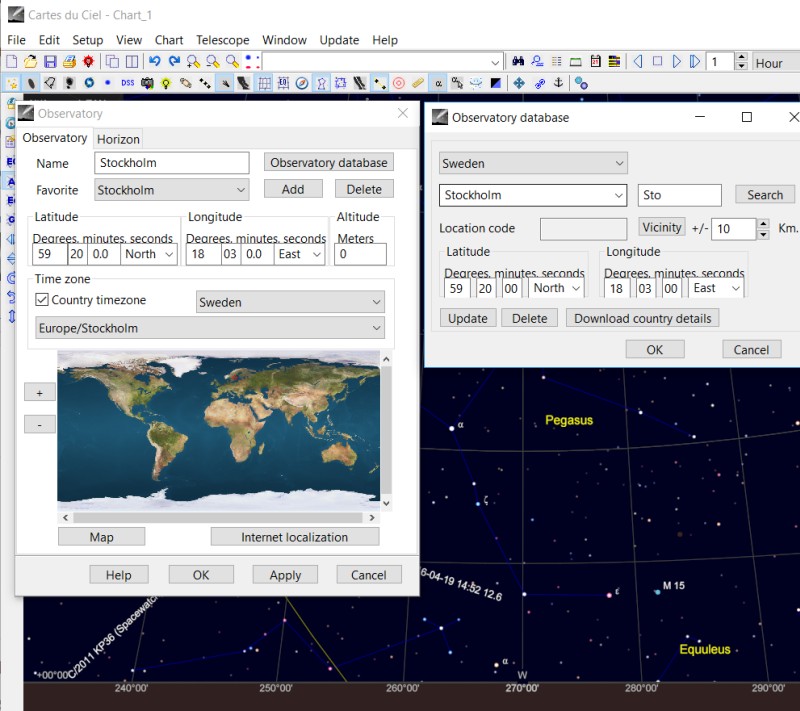
First you must setup your location. Select setup-observatory: set the coordinates for your place or if you have a nearby (less than 150 miles, I also use Skychart to control my telescope and need better precision) observatory, use the observatory database. Set your time zone also. To make the comets easier too see on the star/comet chart, setup it like this: 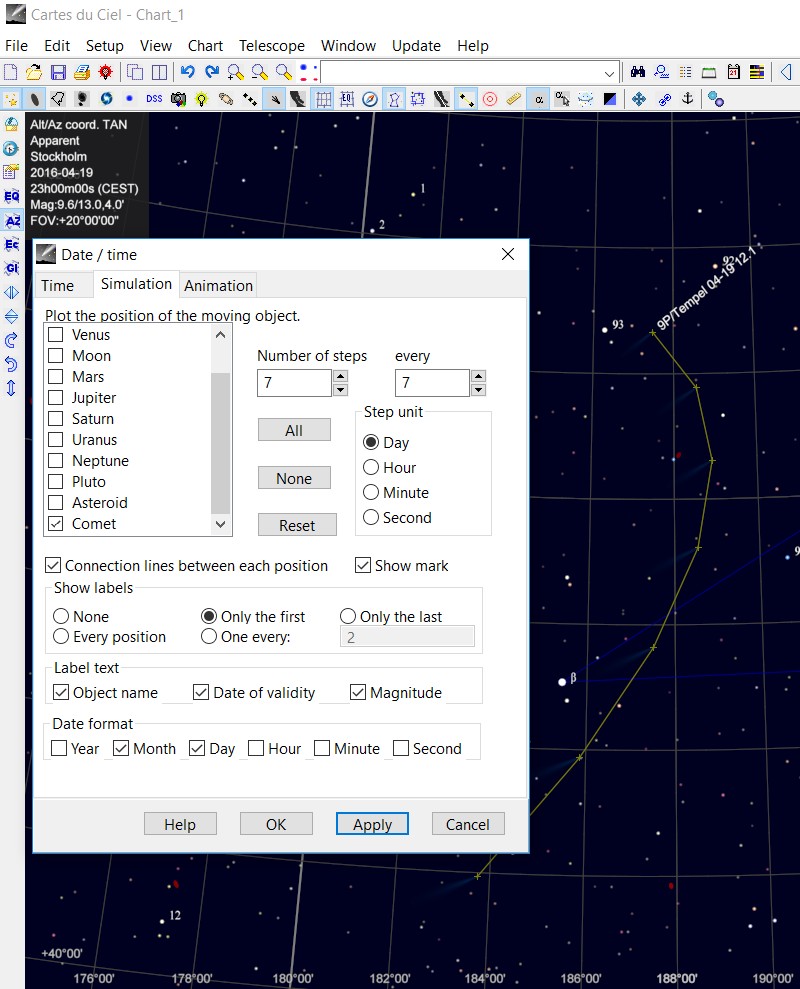
This will draw a line with a circle for the comet's position every seventh day and seven steps (49 days). Then you have to set how weak comets you want to see: 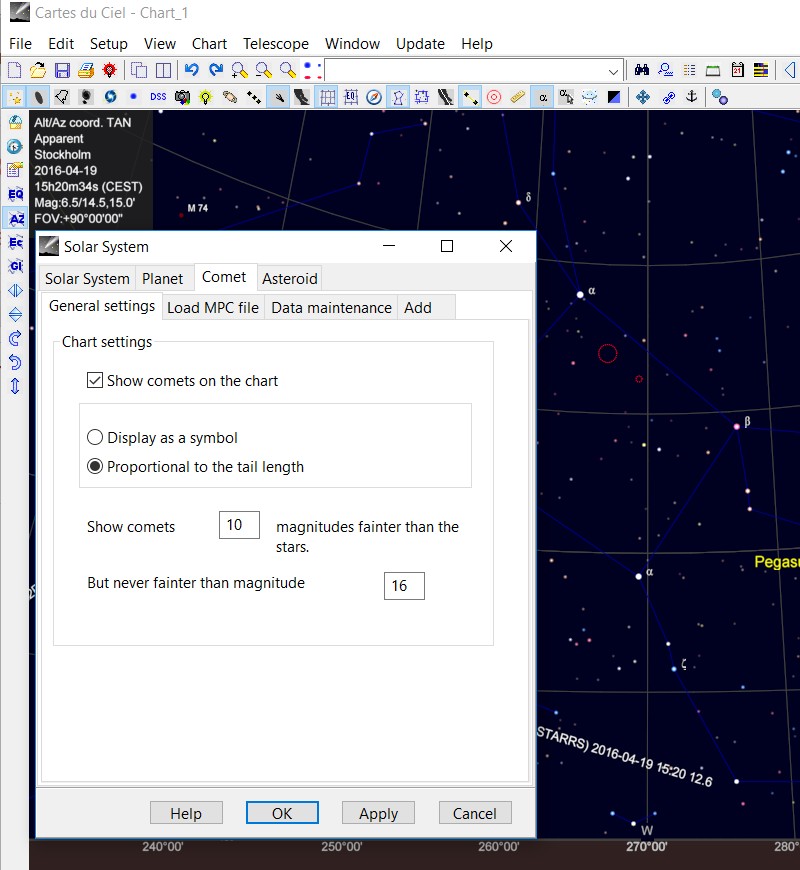
Select Setup-Solarsystem-Comet: You can try this setting, if you want to see more comets on the star/comet chart, increase "show comets" to magnitude 12 and "fainter than magnitude" to magnitude 18. The weakest comet I have on photo is of magnitude 15, but with a darker place I believe I can catch much weaker ones. 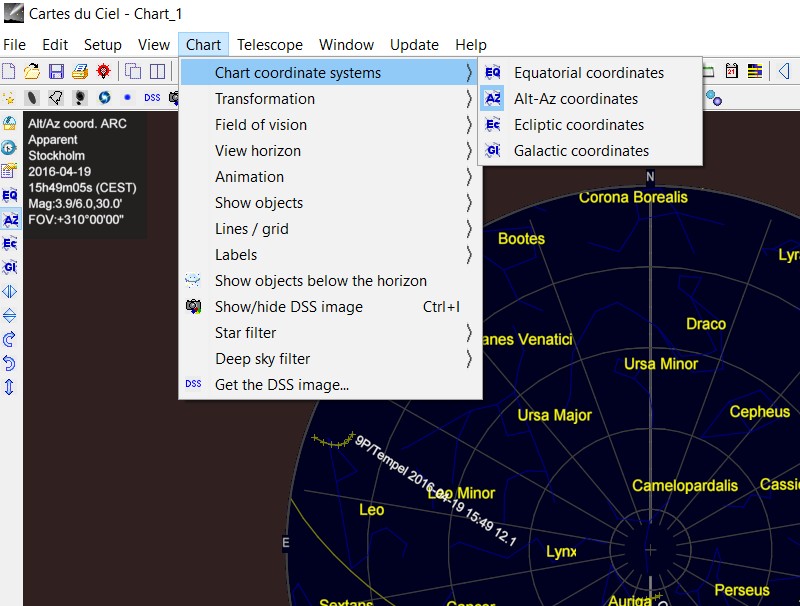
It's best to have the chart drawn in Alt-Az coordinates. Now setup the the date and time the star/comet chart should show: 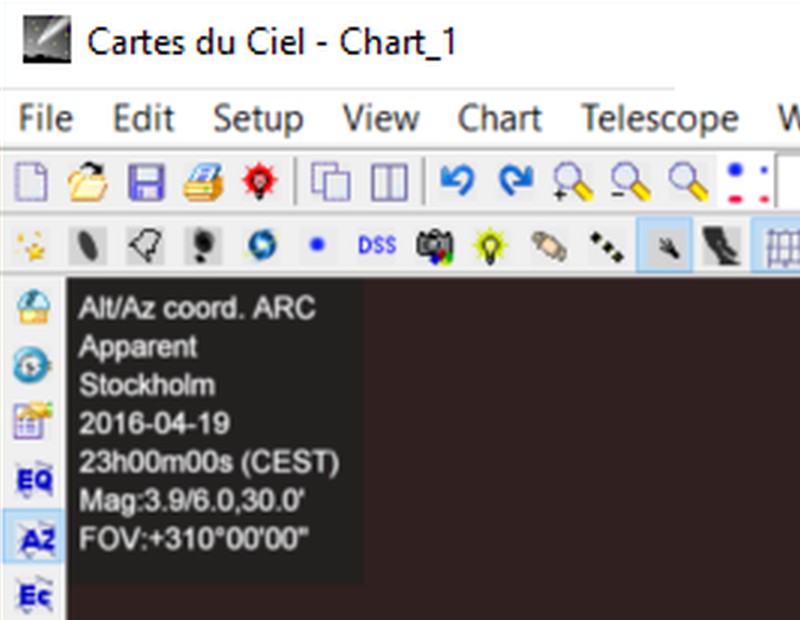
Click on the clock button on the left list. Set the date you want to see and time to something like 10 pm or 22:00 (evening/night, it must be dark!). Afterwards you can step back and forth by one hour too see which time it's easiest too see the comet from your place, high above horizon and when it's darkest. Then unmark the star and deep sky objects, it's the buttons most left on the horizontal list, if you have stars activated it will be a little bit crowded on the chart, but later turn it on and decrease the magnitude that will show up with the two small blue button on the horizontal list. You need the stars to be oriented on the sky. Now set the comet (click on comet button) to show it on the comet chart, and on the horizontal list. Now it's time to see how the chart looks. Click on 310 (degrees) on the list to the right. Use the right scrollbar and move upwards until you see a circular chart like this: 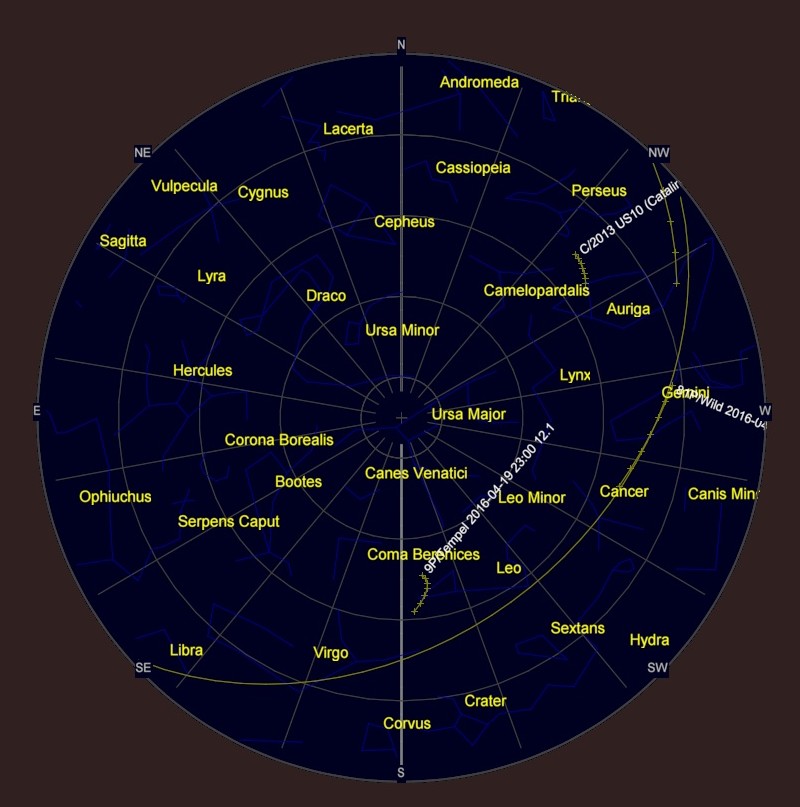
The comets are those with white text and a dotted line, in my setup each dot are seven days apart. These are relative weak comets, use Seiichi Yoshidas homepage to find a brighter comet in the future and use the dates when it has it's maximum. The above chart are almost all the sky above you. To do detail studies, zoom in on a comet, in this example the comet Temple. Easiest is to right click on the small cross left to the comet label, then select "center on", then right click once again and now select "about" and information about the comet will show up on screen. 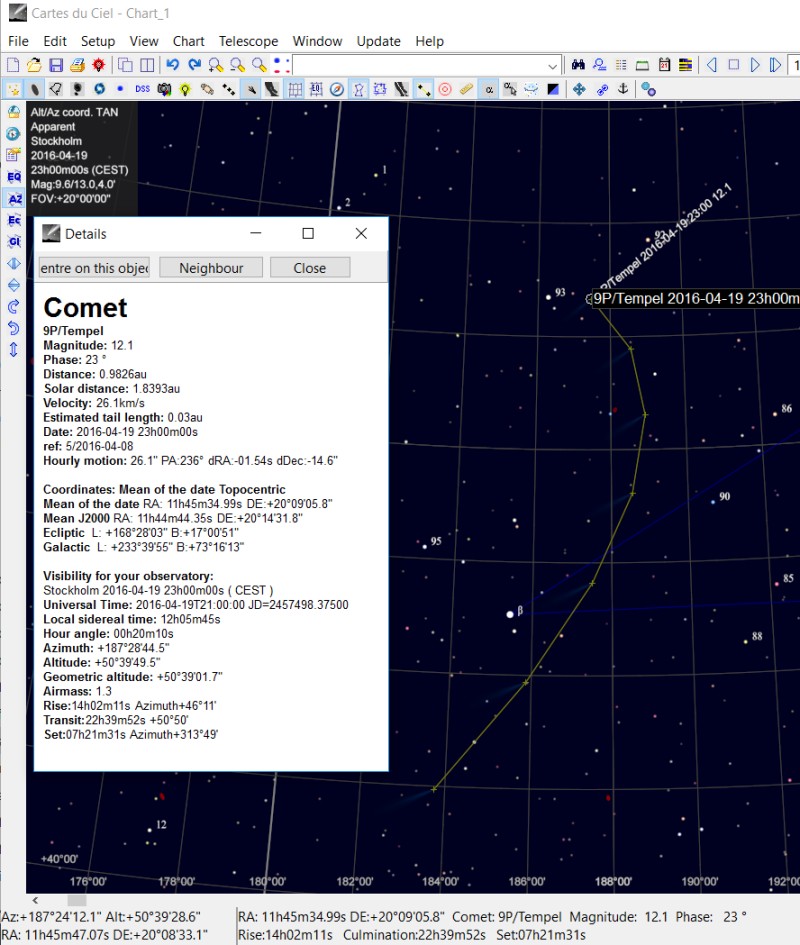
It's hard to see here, but if the setup is correct the tail of the comet will be visible. Here I have turned on the stars and deep sky objects.
|
| Go Back |